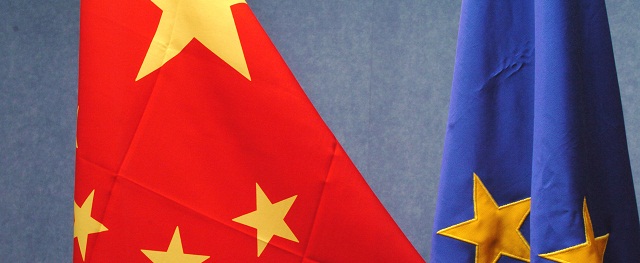BEIJING | Wen Jiabao said goodbye to his European colleagues last September 20, after his very last participation in a China-EU Summit. Autumn will see how Chinese leadership is refurbished after the Communist Party Congress that will take place any time before the end of the year.
In his farewell speech, Wen Jiabao, standing in front of all the EU representatives, regretted his failure in subjects such the arms embargo or the European recognition of China as a market economy: “we worked on that for the last 10 years but we came out with evasive solutions… Something I now regret.”
Wen is considered one of the main architects of the bilateral relations between the Asian tiger and the Union. In his nine years as prime minister, trade exchange quadrupled, resulting in both of them needing each other more than ever.
Europe is the biggest receiver of Chinese exports, and also the second biggest exporter to the Asian country. On top of that, this year Europe became the biggest receiver of foreign investment from Chinese companies. Beijing is also the biggest holder of foreign exchange reserves. According to some estimates, a quarter of its 3,2 trillion dollar are in euro denominations.
Therefore, in times of economic uncertainty they have both committed to paddle together. Such commitment also implies that Chinese should stick to their engagement on buying European debt. Intentions are clear: European economies should recover so consumption flourishes again. China wants exports to Europe to stay as high as possible to avoid the collapse of the manufacture sector. The current situation is all but optimistic: in August, Chinese exports to Europe fell to a 12% compared to the same month on the previous year.
There is one figure that may seem optimistic for some, and the doomsday for others: China prefers to place non-resource investment in Europe. Two reports affirm that Chinese companies like to pick Europe over other markets such the United States as their place for investment. The entrance of capital may benefit the European corporations that recently suffered some liquidity and borrowing difficulties.
At the same time it alerts of an eventual shopping spree by big Chinese companies flying to Europe in order to win assets and technology at a lower price. The private equity group A Capital thinks that during the second quarter Europe attracted the 95% of the non-resource investment from China.
In Spain for example the Chinese Investment Corporations has become a major shareholder of Eutelsat. CIC has acquired the 7% of the satellite operator from Abertis, a Spanish infrastructure group. In the rest of Europe, Chinese investors eye sectors so diverse such infrastructures, services or retail brands.
Take the banking sector; CCB (Chinese Construction Bank, the second biggest bank in China) wants to acquire a bank through the investment of 1.2 billion euro. In an interview with Financial Times, the chairman at CCB assured that he intends to acquire a whole bank, or at least, the 30-50% of a big bank.
There is no reciprocity with regard to the private investment and the landing of Chinese companies in Europe, institutions such the European Chamber of Commerce in Beijing complain. They are positive that in China most of the private companies –a market controlled by state monopolies– as well as public assets, are closed to acquisitions, competition or the entrance of foreign capital.
“There exists a massive asymmetry,” the report of the Chamber of Commerce argues. The report adds that the opening to foreign competition of those markets and sectors blocked by Beijing’s protectionist policies, would result in more innovation, while favouring a wave of growth across the country.
European representatives discussed some of these issues during the latest China-EU Summit. But the Commission’s negotiating power is rather limited due to current economic circumstances and the lack of unity among its members.
The European Commission latest crusade is the opening of an anti-dumping investigation against Chinese exporters of solar energy technology. The Commission accuses these Chinese companies of selling their products in Europe at a lowest price than the production cost. Instead, they receive government subsidies, damaging competition in the old continent.
Nonetheless, the European Commission doesn’t count with a single voice in this battle. Countries like Germany had their say by asking for negotiations instead of imposing tariffs, fines or duties to the Chinese exporters. This lack of unity has been exploited by Wen Jiabao very well, he perfectly knows Europe’s limits. Likewise, Europe has learnt how to negotiate with the prime minister.
Through the years the motto of these summits has been something like “we agree to disagree.” Next year, the EU and a new Chinese prime minister will have to get to know each other. They’ll have to learn how to balance praises and regrets in order to keep agreeing to disagree.






